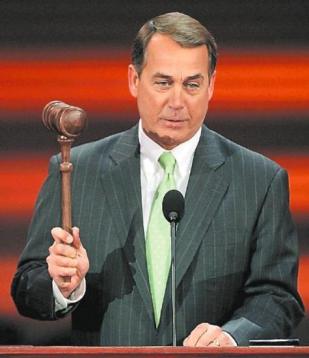Members of Congress worked all day Friday, until 4:42 Saturday morning, to finish voting on hundreds of amendments and, finally, the final HR 1 bill to set spending levels for the rest of 2011.
In the end, the budget bill they passed included 400 amendments and cuts $61 billion out of everything from Planned Parenthood to border security, public radio to foreign aid. And yes – transportation. The House cut funding from Amtrak, TIGER, the DC metro system, high-speed rail, rail safety programs, and the New Starts program for transit expansion.
Colin Peppard at NRDC took a look at how the loss of New Starts would affect transit, using the Bay Area as an example. Despite a half-cent tax hike Santa Clara residents voted for in 2000 to pay for transit expansions, Peppard said, federal assistance is almost always required to help with the big upfront costs. Transit doesn’t get nearly as much federal help as highways, which often have 80 percent of their costs paid for by the feds. The federal match for transit is as little as 50 percent.
Still, that match is essential for many transit expansions to proceed, and Peppard notes that "we won't see many new transit projects in America if the House Republicans get their way."
But will Senate Democrats and the president allow them to get their way? Once both chambers come back from their President’s Day recess, they’ve got one week to see eye to eye on spending and get the president to sign off on the budget. Otherwise, they can either pass another "clean" extension of current spending levels – which Senate Majority Leader Harry Reid says is necessary, but which House Speaker John Boehner has refused to do – or the government will shut down.
The possibility of a shut down seems increasingly likely. “It’s looking like we’re heading in that direction,” said David Goldberg of Transportation for America, “and everybody is more focused on figuring out who gets the blame than on really averting a shutdown.”
The Republicans sure aren’t backing down, says Goldberg, but he doesn’t think the Senate will either. “The truth of the matter is that hacking discretionary spending is going to do beans for the long-term deficit, but it has the potential to stall an economic recovery,” he said.
He also thinks the deep cuts are going to have serious blowback for a lot of members of Congress. “A lot of what got targeted for the cuts were things that conservative supporters have long opposed,” he said, “but in the case of transit investments, it’s not that cut and dried. There are plenty of business and conservative constituents that care about these investments.”






